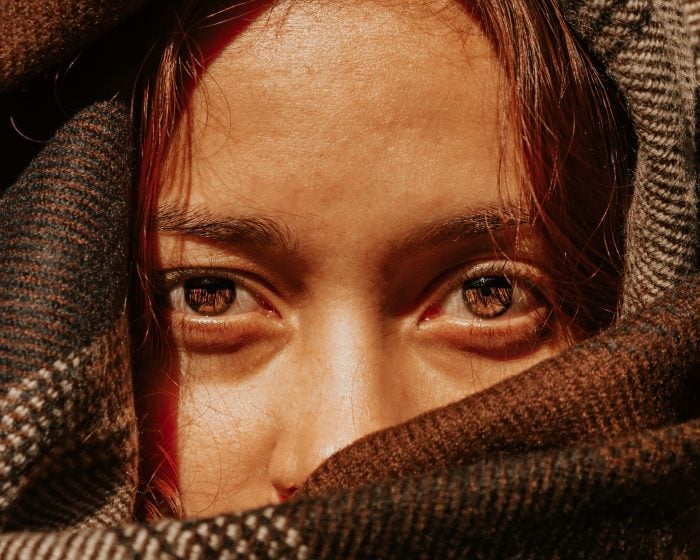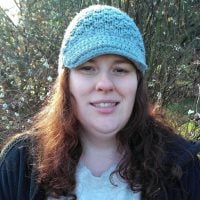Two days ago, I learned that my aunt had passed away from the colon cancer that she had been diagnosed with just around a year ago.
She was only 62. My dad texted me to let me know, although not the best way to receive news like that. It wasn’t unexpected, of course, but it was a shock that it was so sudden.
I’m still trying to process it, and sit with my feelings. The evening I found out, my husband said, “let’s put on something funny to cheer you up!” and I vehemently said, no. I don’t want to gloss over my sadness with forced humour that I wouldn’t be able to enjoy anyway. So instead, we watched the new movie, Soul, because I thought that was apt. It was a beautiful story and it brought me comfort in my shock and sadness.
Because of the pandemic, I hadn’t visited any of my family members who live on an island an hour and a half ferry ride away. Mainly, because I didn’t want to sit on a floating petri dish of potential Covid-spreaders, and also, I didn’t know if I was asymptomatic and potentially bringing the virus to my 72-year-old Dad and my aunt who was dealing with her cancer and her obviously fragile immune system.
So, I did the tough, but right thing, and stayed away. I am supremely grateful that I had organized some virtual visits with my aunt over the last few months since I couldn’t (and didn’t want to for the health and safety of all involved) visit in person.
My aunt and uncle are, or were, simple people, in that they don’t have smartphones, so I couldn’t stay in touch via text. But we did chat once in a while through everyone’s favorite social media chat messenger. They also didn’t have a laptop with a built-in camera, so we couldn’t easily video chat over that. I eventually convinced my aunt to get a video camera for her computer, and we ended up connecting three times over the last few months, just half-hour chats about nothing in particular, but that’s okay.
Sometimes, nothing, in particular, is really everything.
I realised in our hour and a half of virtual face-to-face connecting that it was probably the most time I’d spent talking with my aunt in my entire life. You see, my aunt was the black sheep of the family. Mainly because she didn’t drink—she had got herself sober over 20 years ago, with the help of AA. And because alcohol seemed to be the thread that held the rest of our family together, and because my aunt was a bit quirky and eccentric, she was forced to the sidelines of any family gathering.
Of course, she joined in all the big family get-togethers like Easter and Christmas, and I saw and spoke to her briefly then, but it was everyone vying for attention, as usual, at big family functions, and ultimately deferring to the matriarch and patriarch of our combined families—my grandparents.
My journey into loss unfolded like this. When I was around 13 or 14, I got a phone call from one of my aunts who told me to get my dad. It turned out that one of his three sisters had passed away, one I’d only met a handful of times growing up, so her death felt ethereal and not real to me.
The second loss I experienced was my dad’s father, but because he lived four hours away and we rarely saw him over the years (besides sometimes spending summers when I was a kid at his house on the shores of a lake), I wasn’t very close to him, and though I was sad, his passing didn’t affect me all that much.
The third death I experienced was that of one of my uncles, at his own hand, around 13 years ago. It was not only saddening, but shocking because it was unexpected for everyone—including his family, his wife, and three kids, and my cousins. Again, I was sad, but my relatives lived far away and we rarely saw them over the years. My dad on the other hand was enraged by my uncle’s action on behalf of his sister who was now a widow, way younger than she should have been.
My grandpa (on my mom’s side) passed away over 10 years ago. His was the first loss I’d experienced, at the age of 31, that really affected me. I was pretty close to him as my grandparents lived minutes away from my parents’ house for many years, so I saw him a lot when I still lived at home, and also regularly whenever I visited my family after I’d flown the nest. So his passing hit me harder than the others, but at the same time, he was two weeks shy of his 90th birthday. He’d lived a long and good life, nothing to be overly sad about, besides the fact I’d never see him again.
Flash forward to five years ago when I lost my mother to alcoholism at the relatively young age of 65. See, I told you, alcohol bound my family together. Because we had always had a rough and complicated relationship due to her addiction, but also because she was mom, I had a hard time with her passing. Even though all of us (my brother and dad and the rest of my family) were actually surprised she’d made it to 65, considering how many others who succumb to that life leave us far earlier.
After my mom passed in December, come January 1st, 2016, I made a resolution as a way to help me through my grief—I started a daily yoga practice. After about six months of that, I decided I wanted to become a yoga teacher, so I made that leap.
Through my deep dive into yoga through my training, I discovered meditation. I mean, I’d known about it before, but never really practiced it to any degree. Since then, both my yoga and meditation practices have become keystones to me—vital parts of my life that help keep me healthy in mind, body, and spirit. Out of something sad and traumatic, I managed to grow into a different person, a better, more whole person. Even though I fell apart into a million pieces, my discovery of the spiritual practices of yoga and meditation and all that entails have stitched me back together into a different, yet strong jigsaw puzzle of a human being. Through her passing, I experienced something I hadn’t heard of until then after reading Sheryl Sandberg’s great book, “Option B: Facing Adversity, Building Resilience, and Finding Joy”—and that is post-traumatic growth.
Back in March of last year, 2020, the year we probably all want to forget, I lost my grandma, my mom’s mom, who lived her last few years in the basement suite of my aunt’s house. I hadn’t been able to visit to celebrate her birthday that was thrown a month earlier in February because my grandma was prescient enough to know she probably wouldn’t be around much longer—and at 95, that’s a pretty good guess. So when my grandma passed at 94, a few days shy of her 95th birthday, I was saddened (thanks to the worldwide pandemic) that I hadn’t been able to visit her beforehand, and also that no one was able to visit at her end. But at the same time, thankful that she’d passed fairly quickly after a stroke, and amazingly she joined her husband on his birthday. 95. You can’t really complain, with those innings.
And now we come to today. Or rather, three days ago, with the passing of my beautiful, talented aunt who was an artist. As when my mom passed, I am thankful she is no longer suffering, and that she didn’t suffer long from when she was first diagnosed.
She chose not to continue with her chemotherapy treatment as she knew it wasn’t going to save her, and she’d rather not feel as awful as the treatments made her, so she left us on her own terms. My aunt had a quirky, dark sense of humour and a strong sense of optimism and gratitude for life for as long as I’d known her due to her deep sense of spirituality, which was there with her until the very end, up to our last virtual face-to-face conversation, just a few short weeks ago and when she was moved into palliative care last Tuesday.
I am saddened by the loss of my aunt, and I feel for my uncle who is now alone (and, thanks to the pandemic, can have no visitors), and for my other uncle, my aunt, and mom’s older brother who lives across the country and is now the sole remaining member of my mom’s side of the family.
But, as with my mom’s passing, I am curious to see how I will change, grow, and evolve to be. Who my aunt will help me to be, through her final act of leaving this world and moving on to whatever is next.
As the famous Ernest Hemingway quote says: “The world breaks everyone and afterward many are strong at the broken places.”











Read 20 comments and reply